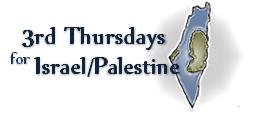3rd Thursday Alert: Tell US leadership to apply consistency in upholding international law and human rights
Since the invasion of Ukraine on Feb. 24, the international community has shown robust and almost unanimous resolve in holding the government of Russia accountable. Putin has attacked a sovereign nation, and has violated international human rights and humanitarian law by bombarding civilians in Ukraine’s towns cities and causing the displacement of massive numbers of Ukrainians and others residing in Ukraine, now numbering in the millions. In just two weeks, the refugee crisis has become the worst such case of displacement in Europe since World War II, exacerbating the already unprecedented global refugee crisis. The numbers of internally displaced, including Ukrainians and people of African and Middle Eastern descent, many of whom are unable to leave, is also staggering.
The international community has, for the most part, supported Ukrainian efforts to resist Russian military aggression; supported the efforts to receive refugees and provide for their needs; imposed targeted sanctions against Russia, its commercial outlets, its banks, and its leaders; and implemented commercial and cultural boycotts of Russian products, as well as companies that operate in Russia. At the same time, many Russians have courageously opposed this military action. The international community must avoid demonizing the Russian people, even as it strongly opposes the actions of the Russian government.
All of these efforts to hold Russia accountable and to oppose the invasion remind us of the ways that US and the international community opposed the Iraqi invasion of Kuwait, for example.
But not every previous, similar military activity has been met with such a flurry of actions to oppose the devastation wrought by countries when they have violated international law. In some situations in the Middle East, such aggression has been and continues to be abetted, and not opposed:
- The ongoing war in Yemen has become the world’s worst humanitarian crisis, according to the World Food Program. Instigated by Saudi Arabia and the UAE, and supported by the US, Canada, and others, the war has led to more than 16 million Yemenis on the verge of starvation.
- Almost 7 million Syrians have become refugees in neighboring countries, and more than half the Syrian population has been displaced overall in the 11-year war there – supported by various outside powers. Many, but not all by far, of them are still in refugee camps waiting to learn their fate, not having been received and assisted with nearly the same enthusiasm as those fleeing Ukraine have.
- Israel’s decades-long illegal acquisition, occupation, and annexation of Palestinian land has resulted in more than 5 million refugees whose rights remain disrespected or ignored. In this instance, boycotts and sanctions to hold Israel accountable have been deemed illegitimate or even made illegal. Palestinian non-violent resistance, unlike that in Ukraine, has been ridiculed and delegitimized.

